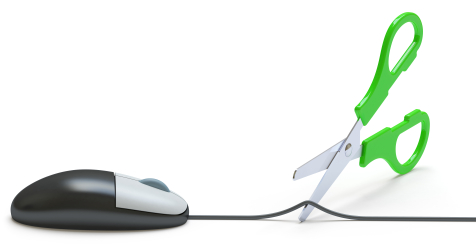I am used to staying in touch with people and accessing the news online whenever I want. I spent an enormous amount of time on my phone and computer over the past year, while writing and launching my new book, Parenting Without Borders. There were edits I was eager to see, updates I had to keep up with; lots of emails I “had” to respond to right away. I also used my phone to stay in touch with my brothers and parents and far away friends, to arrange school pickups and playdates, send photos, catch up with people on Facebook, and correspond with my colleagues as we prepared for the launch of Nurture Parenting (now Fearless Parent).
Although I loved being able to stay in touch with people this way, before too long, my mind started to process anything new – a new message, text, someone’s interesting status update, a response – as stimulation. My fingers learned how to automatically check in on my favorite sites without my even being aware of what I was doing. All too quickly I started to feel that I could not live without my phone.
Then last month we returned to Japan, where we used to live, for the summer. After so many months being constantly online, I was in for a shock. Here, I can only use my phone with wi-fi service, and we only have wi-fi in one room of our home. Even there, the signal is spotty. Random email checks, text messages, checking Twitter or FB, looking up a recipe online, or making a Skype call can’t ever be done instantly. They now take patience and effort and are sometimes even simply impossible.
At first this felt incredibly inconvenient. To constantly check in on my phone wherever I was had become such a mindless, automatic habit, so automatic that I often didn’t realize I was glancing at my screen. But I realize now that what felt like freedom back in the US- the freedom to get online wherever I might be – had actually become a burden.
The most humbling moment came when I was looking at something on the computer with my youngest daughter, who is three and a half, on my lap. She was hugging me fiercely.
“I’m hugging you, Mama! Hug me!” she pleaded.
“I am hugging you,” I said absent-mindedly.
But I wasn’t.
I was staring at my screen.
To change a habit this entrenched takes willpower and self-control- something that doesn’t come easily to me, especially with a habit this pervasive. That’s why it was helpful to have a “barrier” – something external that would prevent me from too easily and mindlessly accessing the internet. For me that barrier is our primitive, hair-pull-inducing wi-fi. For others, it might be something like the application “Freedom,” which disables internet access on an Apple computer for a period of time you choose. Or it might be a vow to stick to an internet Sabbath – a pledge to turn off the phone and computer for a day or a weekend or longer.
Replacing bad habits with good ones is also more easily maintained when you can actually experience the rewards that the change brings into your life. The tangible proof of how my life would improve by getting unwired was to be found in the daily moments that have suddenly blossomed in front of me: the freedom I feel from constantly and automatically checking in, the way I am able to be more attentive to my family and thefriends who are right here with me, the bedtime books I read to my children without feeling impatient to peek at my phone, freedom from the guilt I felt about the distraction I was modeling to my kids.
It just feels so much better to have my mind free of the craving for stimulation which too often turns out to be pretty empty anyway. With this new expanse of time to reconnect more deeply with those right in front of me, I finally feel like I can breathe.
Have a look at this wordless compelling video of a Thai commercial, “Disconnect to Connect,” that has been making the rounds lately.
After just a few weeks in Japan, I see our primitive wi-fi as a true blessing in disguise. When we return to the comforts of home back in the US at the end of the summer, I know one thing: I’m going to remember how good it felt to “disconnect to connect.” I’m going to stash my phone away more often, turn off the computer, and create more wi-fi-free zones in our home.













I am a Grandmother, and an early childhood teacher. I do wonder about the effect of the social media on small children’s lives! We can easily spend time not interacting with our families and friends, it’s an un social interruption which we do need to Learn to manage. Thanks for sharing your story.